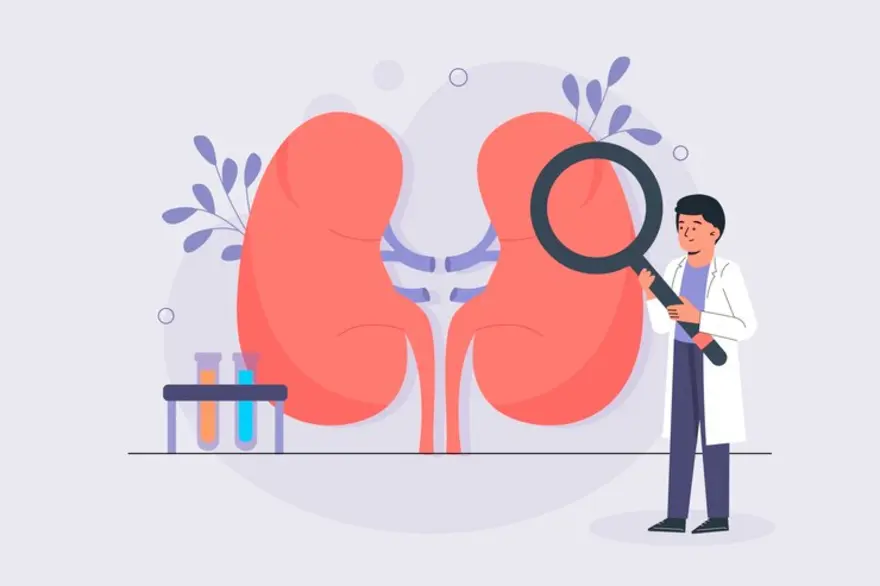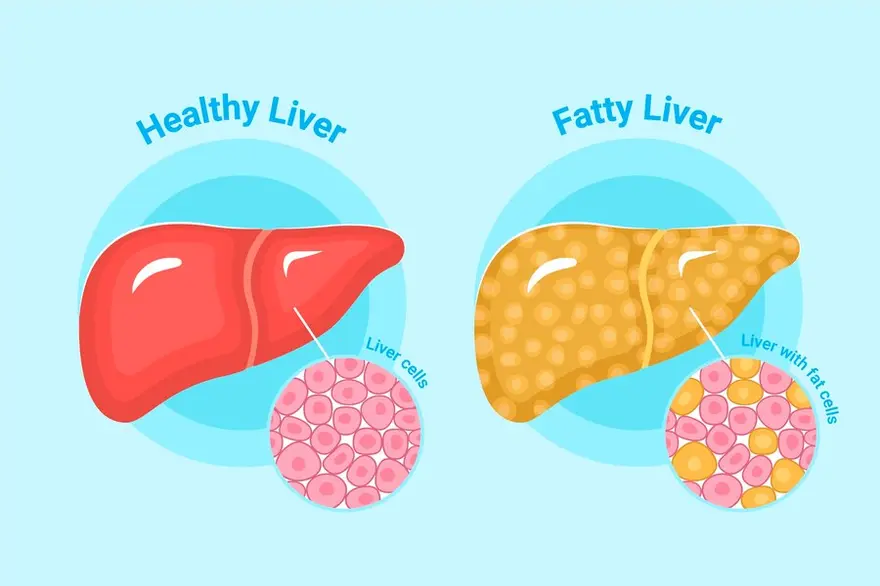hydronephrosis causes
Understanding Hydronephrosis: Causes, Symptoms, Treatment and More
Hydronephrosis is a condition marked by the swelling of your kidneys, that can affect your kidney health if not treated in its early stages. Therefore, identifying early hydronephrosis symptoms is essential for timely intervention. This guide discusses everything you need to know about hydronephrosis, from its causes, symptoms, and diagnostic methods, to effective management strategies, helping you maintain optimal kidney functioning. What is hydronephrosis? Hydronephrosis is a medical condition characterised by the swelling of one or both of your kidneys due to the accumulation of urine. This occurs when your urine flow is obstructed, preventing it from draining properly from your kidney to the bladder. The increased pressure from the blocked urine can lead to potential damage to your kidney tissue if left untreated. How common is hydronephrosis? Hydronephrosis is a relatively common condition that affects people of all ages. The occurrence of hydronephrosis within the overall population ranges from 0.15% to 0.67%, with a male-to-female ratio of 2:1. What are the symptoms of hydronephrosis? Some common hydronephrosis symptoms include: Flank pain is a common symptom of hydronephrosis, that you'll often feel as pain in your side or back. You may experience discomfort and difficulty during urination or changes in urination frequency. The sensation of fullness and swelling in your abdominal region are also common symptoms. Nausea and vomiting may be seen especially in severe cases. The presence of blood in the urine (Haematuria) is occasionally associated with hydronephrosis and is indicative of possible kidney damage. It is important to detect early symptoms of hydronephrosis and get appropriate treatment. What causes hydronephrosis? Urinary Tract Obstruction: It is the most common cause of hydronephrosis. Any blockage in the urinary tract, such as kidney stones, blood clots, or tumours, can impede the normal flow of urine. Congenital Abnormalities: Some people may be born with structural issues in the urinary tract, such as ureteropelvic junction obstruction or vesicoureteral reflux. This predisposes them to hydronephrosis. Enlarged Prostate: In men, an enlarged prostate can constrict their urethra, leading to urine backup and subsequent hydronephrosis. Pregnancy: The growing uterus can exert pressure on the ureters, causing hydronephrosis in pregnancy. Kidney Stones: These hard deposits can obstruct the urinary tract, leading to hydronephrosis as the kidney swells due to the accumulated urine. Blood Clots: Clots in the urinary tract can impede urine flow, contributing to hydronephrosis. Tumours: Both benign and malignant tumours in your urinary tract or surrounding areas can physically block the normal passage of urine, causing hydronephrosis. Urinary Tract Infections (UTIs): Persistent or severe infections can lead to inflammation and scarring, contributing to urinary tract blockages and hydronephrosis. Neurogenic Bladder: Conditions affecting nerve function in your bladder can disrupt the normal coordination of urine release, potentially causing hydronephrosis. Injury or Trauma: Damage to your urinary tract due to accidents or surgeries may result in scarring, narrowing, or blockages, leading to hydronephrosis. What are the complications of hydronephrosis? Complications of hydronephrosis depend on the underlying cause of hydronephrosis. It can include kidney damage, infections, and, in severe cases, permanent loss of kidney function. How is hydronephrosis diagnosed? Hydronephrosis diagnosis involves the following procedures: The first step involves a thorough review of your medical history and a physical examination. Utilisation of ultrasound, CT scans, or MRIs plays a key role in visualising your kidneys. It identifies any blockages or enlargement that may indicate hydronephrosis. Examination of urine helps assess your kidney function, identifying abnormalities such as signs of infection or blood. Blood tests for hydronephrosis include assessing BUN(Blood Urea Nitrogen), creatinine, CBC(Complete Blood Count), and electrolyte levels. In specific cases, additional tests like a renal scan or cystoscopy may be performed to obtain more detailed information about your condition. What will your doctor do to treat hydronephrosis? Treatment for hydronephrosis depends on the underlying cause and the severity of the condition. Here are common hydronephrosis treatment options: Observation: In mild cases or when the cause is temporary, your doctor may choose to monitor your condition closely without immediate intervention. Medications: Diuretics may be prescribed to increase your urine output, helping in mild hydronephrosis treatment. Ureteral Stent: Inserting a stent into your ureter helps keep it open, promoting normal urine flow. This is often done in cases of blockages or strictures. Nephrostomy Tube: In severe cases, a tube may be inserted through your skin into the kidney to drain urine directly. This helps in bypassing the obstruction. Surgery: Surgical procedures may be required to correct structural issues causing hydronephrosis, such as removing kidney stones, repairing blockages, or treating tumours. Lithotripsy: Shock wave therapy can be employed to break down kidney stones into smaller, more manageable fragments. Antibiotic Therapy: If hydronephrosis is due to a urinary tract infection, antibiotics are essential to clear the infection and prevent further complications. How can you prevent hydronephrosis? To prevent hydronephrosis, stay hydrated to reduce the risk of kidney stones. Maintain a healthy lifestyle with a balanced diet and regular exercise. Promptly address urinary tract infections, and seek medical attention for any symptoms indicating kidney problems. Is hydronephrosis a serious problem? Yes, hydronephrosis can be a serious problem if you leave it untreated. It can potentially lead to serious kidney damage. However, most cases can be resolved with appropriate treatment. Should you worry about hydronephrosis? You don't have to be overly concerned about being diagnosed with hydronephrosis. In the majority of instances, appropriate treatment will enable you to live a healthy life without encountering any lasting complications. When should you see your doctor? Consult a doctor for hydronephrosis if you experience persistent flank pain, frequent urination, blood in urine, fever or signs of infection. Conclusion Hydronephrosis, though concerning, often responds well to timely medical intervention. Monitoring symptoms, seeking prompt diagnosis, and adhering to recommended treatments can mitigate complications, allowing you to maintain a normal, healthy life. If you are facing discomfort during urination or experiencing other symptoms of hydronephrosis, consider booking a blood test with Metropolis Labs to evaluate your creatinine, CBC and BUN levels. Metropolis Healthcare stands out for its best-in-class diagnostic labs, at-home testing service, expert phlebotomists, and reliability that is second to none. So do not delay and book your slot today!












1736772454.webp)

 WhatsApp
WhatsApp